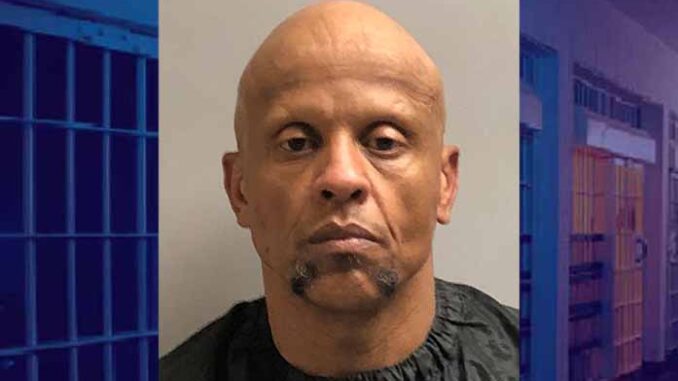
A Casa Grande man errantly freed in 2019 from state prison 32 years early will be sentenced next month for four felony drug charges committed in Cochise County after his release.
William LaRoy Davis should have remained in custody of the Arizona Department of Corrections until 2053 based on convictions in four drugs cases filed in 2012 and 2013. However, a 32-year prison term in one of the cases was “misprocessed,” according to public records.
This allowed Davis to be released in 2019 to serve a short period of community supervision, or what most people consider to be parole. The mistake by ADC was not discovered until Davis was arrested in January 2021 on new charges related to the transportation of methamphetamine for sale.
Davis, 51, is now facing another three decades in prison when sentenced next month in the 2021 case. But how Davis came to be convicted in that case is also quite unusual, as he never stood trial and there was no plea deal.
A criminal prosecution is typically resolved one of four ways: the charges are dismissed, a defendant enters into a plea deal, there is a jury trial, or there is a bench trial in which the judge serves as the jury while listening to witness testimony in a publicly accessible courtroom.
Judge Timothy Dickerson announced earlier this year that Davis would have a jury trial starting July 6. But the day before, Davis requested a rarely used method for adjudicating his case by having Dickerson to find Davis guilty or not guilty by reviewing evidence submitted by the prosecutor and Davis’ defense counsel.
All of which was done in the judge’s chambers with no public proceedings and no witnesses testifying under oath.
Davis’ request is allowed under Rule 17.7 of Arizona’s Rules of Criminal Procedure as what is commonly referred to as an “as submitted” verdict. Dickerson announced the four guilty verdicts July 8 and ruled four aggravating factors were proven, including that Davis committed the drug offenses in 2021 “while he was
on parole, work furlough, community supervision, or any other release following a conviction of a felony offense.”
Davis will appear before Dickerson for sentencing Aug. 12. His criminal history along with the aggravating factors will be among the factors the judge can consider when imposing sentencing. In the meantime, Davis is being held without bond in the Cochise County jail.
Arizona Daily Independent has confirmed Davis was offered -and rejected- a plea deal which guaranteed any new sentence would be served concurrently, or at the same time, as his 32-year term from 2013.
Getting Davis’ case to a verdict stage has presented challenges for the judge, prosecutor, and Davis’ court appointed attorney since his indictment earlier last year by a Cochise County grand jury. One issue was clarifying Davis’ status with ADC which now reflects an Oct. 5, 2053 release date until Dickerson imposes sentence on the new convictions.
Then there was a several month delay while Dickerson determined Davis was mentally competent to assist with his own defense. There were also legal disputes on whether jurors would hear about Davis’ multiple prior conviction for drug offenses.
Davis also requested the court appoint and pay for a specific private attorney he wanted to handle the case instead of Ashlea Allred, a deputy legal advocate for Cochise County.
In the end, Dickerson ruled that jurors could hear about Davis’ prior convictions if he testified. The judge also allowed Davis’ preferred attorney to communicate with Allred but did not take Allred off the case.
As for Davis’ decision to forego a trial, prosecutor Terisha Driggs of the the Cochise County Attorney’s Office said she was fully prepared to go forward with the jury trial on July 6. She had no objections to the Rule 17.7 process, however, as all the evidence and witness testimony she intended to present at trial was conveyed to Dickerson through the stipulated record he reviewed.
The decision by Davis to have his case adjudicated under Rule 17.7 preserves his right to appeal as if he had gone to trial, according to Driggs.


